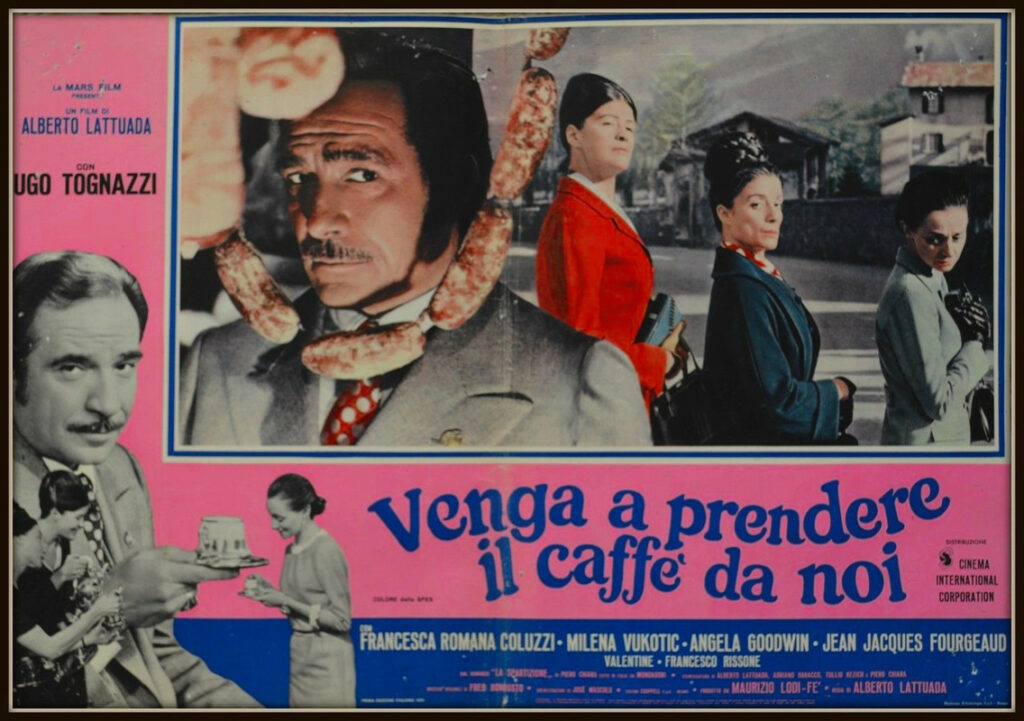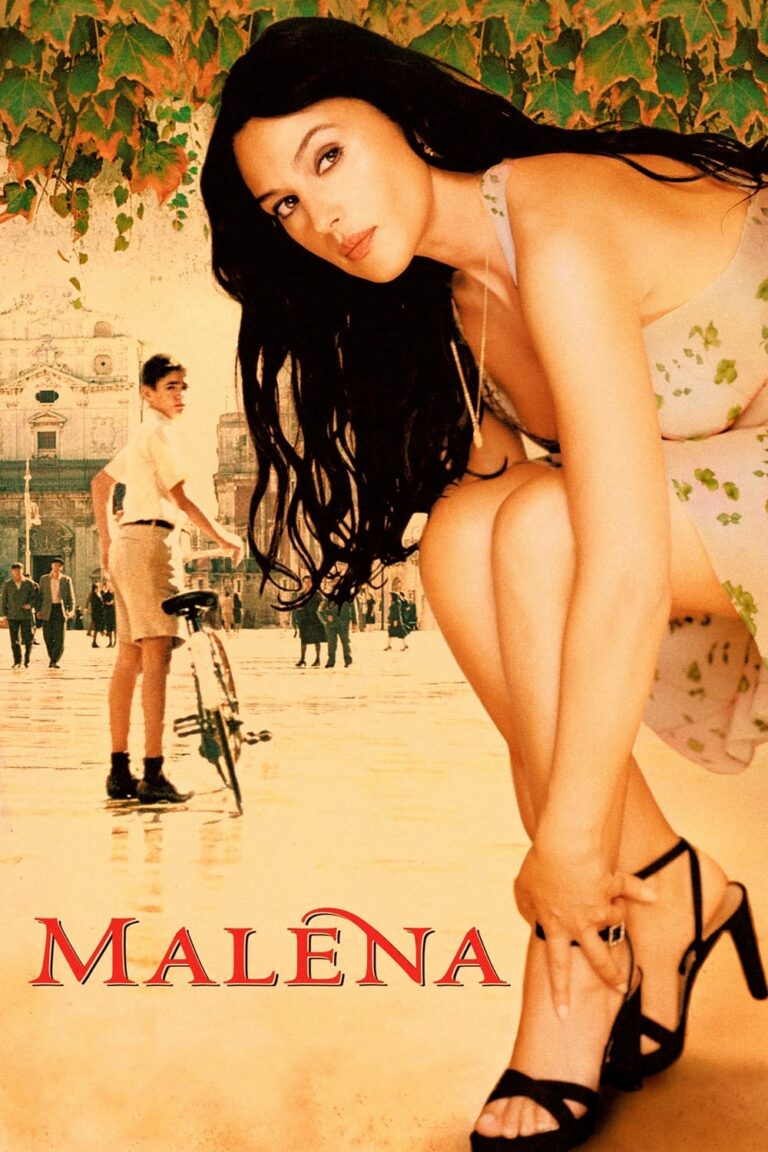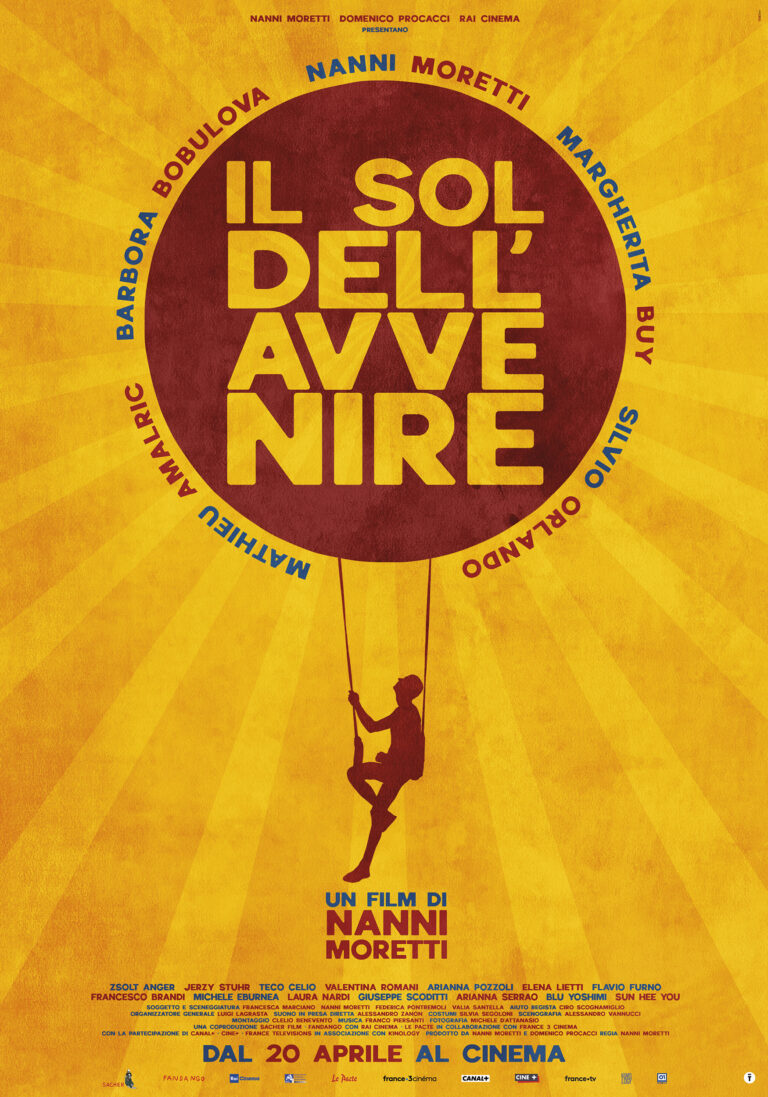
The Italian film Come Have Coffee With Us (Venga a prendere il caffè da noi), directed by Alberto Lattuada in 1970, is a brilliantly subtle yet humorous satire of human desires, societal norms, and the quest for love and security. Based on the novel La spartizione by Piero Chiara, the film offers a sharp critique of bourgeois values and small-town life in Italy while delivering a delightfully offbeat narrative.
This article explores the film’s plot, themes, characters, directorial vision, and cultural significance, shedding light on why it continues to be an enduring classic in Italian cinema.
Plot Summary: An Unconventional Quest for Comfort
The story revolves around Emerenziano Paronzini (played by Ugo Tognazzi), a middle-aged, shrewd government tax inspector who is seeking an easy life filled with comfort, security, and sensual pleasure. Emerenziano moves to a quiet Italian town with a singular plan: to marry a wealthy and accommodating woman who will allow him to live comfortably without much effort on his part.
His search brings him to the Tettamanzi sisters—Fortunata, Tarsilla, and Camilla—three spinsters who live together in their family home. Despite their seemingly unremarkable lives, the sisters possess significant wealth inherited from their deceased parents. Emerenziano soon devises a cunning plan: he will charm and marry Fortunata, the eldest sister, and then seduce the other two sisters to create a harem-like domestic arrangement.
Through this absurdly comedic yet thought-provoking premise, Come Have Coffee With Us unfolds as a biting satire of human greed, repressed desires, and societal conventions.
Themes: Satire and Subtlety
1. The Absurdity of Social Conventions
The film cleverly critiques the rigidity of societal norms, particularly those surrounding marriage and gender roles. Emerenziano’s calculated approach to marriage as a business transaction highlights the absurdity of a system where financial and social stability often outweigh love and emotional connection.
2. Human Greed and Selfishness
Emerenziano embodies the darker side of human nature, driven by greed, selfishness, and opportunism. His manipulative behavior, though often comical, serves as a cautionary tale about the emptiness of a life driven purely by material gain.
3. Repressed Desires and Hypocrisy
The Tettamanzi sisters, despite their outward appearance of propriety, harbor repressed desires and unfulfilled passions. The film deftly explores the tension between societal expectations and personal yearning, presenting the sisters as complex characters rather than mere caricatures.
4. Small-Town Life
Set in a quiet provincial town, the film captures the monotony, gossip, and eccentricities of small-town life in Italy. The setting acts as a microcosm of Italian society during the post-war period, with its blend of tradition and modernity.
The Characters: Flawed and Fascinating
1. Emerenziano Paronzini (Ugo Tognazzi)
Emerenziano is the epitome of the antihero—self-serving, manipulative, and morally ambiguous. Yet, Tognazzi’s masterful performance infuses the character with charm and humor, making him oddly likable despite his flaws.
2. The Tettamanzi Sisters
Each of the Tettamanzi sisters possesses a distinct personality, adding depth and variety to the narrative:
- Fortunata, the eldest, is dutiful and eager to please.
- Tarsilla is the no-nonsense sibling, seemingly cold yet harboring a hidden vulnerability.
- Camilla, the youngest, is shy and dreamy, longing for affection and escape.
The sisters, initially portrayed as naive victims of Emerenziano’s schemes, gradually reveal layers of complexity, making the audience question who is truly manipulating whom.
Alberto Lattuada’s Direction: A Blend of Comedy and Critique
Alberto Lattuada, known for his versatility as a filmmaker, brings a unique sensibility to Come Have Coffee With Us. The film balances moments of absurd comedy with biting social commentary, a hallmark of Lattuada’s work.
1. A Sharp Eye for Detail
Lattuada’s direction captures the idiosyncrasies of provincial Italian life with precision, from the meticulously decorated interiors of the Tettamanzi home to the quirks of the town’s inhabitants.
2. Satirical Humor
The humor in Come Have Coffee With Us is subtle and satirical, often relying on clever dialogue, ironic situations, and understated performances. Lattuada avoids slapstick in favor of a more sophisticated comedic style that invites reflection.
3. Visual Storytelling
The cinematography by Lamberto Caimi enhances the film’s storytelling, using carefully framed shots and natural lighting to create an intimate yet visually engaging atmosphere. The visuals often juxtapose the charm of the Italian countryside with the darker undercurrents of the story.
Cultural Significance
Come Have Coffee With Us reflects the societal changes and tensions in post-war Italy, particularly the clash between traditional values and modern aspirations.
1. Gender Roles and Marriage
The film offers a satirical critique of the traditional institution of marriage, portraying it as a transactional arrangement rather than a romantic union. This perspective resonated with audiences in the 1970s, a time when societal norms around gender and relationships were being questioned.
2. The Italian Bourgeoisie
The film’s portrayal of the bourgeois lifestyle, with its focus on appearances, wealth, and propriety, serves as a biting commentary on the emptiness of materialism.
3. Timeless Appeal
Despite being rooted in its historical and cultural context, the film’s themes of greed, desire, and societal hypocrisy remain relevant, ensuring its enduring appeal.
Performances: A Stellar Cast
Ugo Tognazzi as Emerenziano
Tognazzi’s performance is a tour de force, blending charm, wit, and cynicism to create a character that is as fascinating as he is reprehensible. His nuanced portrayal captures Emerenziano’s opportunism without descending into caricature.
The Tettamanzi Sisters
The actresses playing the Tettamanzi sisters deliver understated yet impactful performances, bringing depth and authenticity to their roles. Their chemistry with Tognazzi adds to the film’s charm.
Why Come Have Coffee With Us Remains a Classic
1. Unique Blend of Humor and Social Critique
The film’s ability to entertain while offering sharp social commentary sets it apart from conventional comedies. Its wit and subtlety ensure that it resonates with viewers on multiple levels.
2. Masterful Direction and Performances
Lattuada’s direction, combined with Tognazzi’s standout performance, elevates the film into a cinematic gem that transcends its genre.
3. Universal Themes
While firmly rooted in Italian culture, the film’s exploration of human desires, societal expectations, and the quest for fulfillment makes it universally relatable.
Conclusion
Come Have Coffee With Us is a rare cinematic gem that combines humor, insight, and artistry to create a timeless portrait of human folly and societal norms. With its sharp satire, unforgettable characters, and brilliant direction, the film stands as a testament to the enduring power of Italian cinema to entertain, provoke, and inspire.





